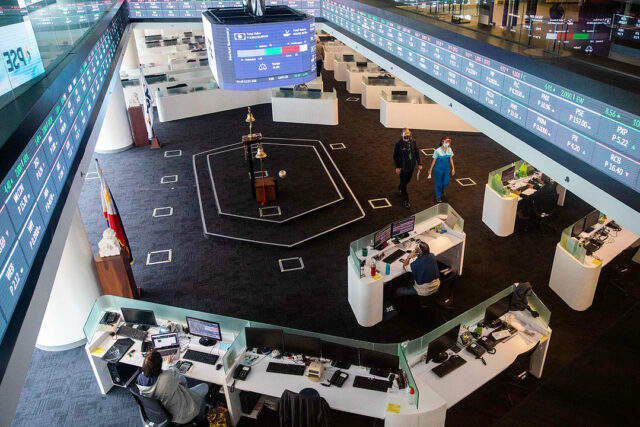 Next week marks the beginning of April, and that means the start of Filipino Food Month (FFM). It is set to officially open in Pampanga, regarded as the country’s “Culinary Capital.”
Next week marks the beginning of April, and that means the start of Filipino Food Month (FFM). It is set to officially open in Pampanga, regarded as the country’s “Culinary Capital.”
The National Commission for Culture and the Arts (NCCA), the Departments of Agriculture (DA) and Tourism (DoT), and the Philippine Culinary Heritage Movement (PCHM) are all joining forces for a set of programs and events for FFM 2024, or Buwan ng Kalutong Filipino. This year’s theme is “Kalutong Filipino, Lakas ng Kabataang Makabago (Filipino cuisine, strength of the new youth).”
By virtue of Presidential Proclamation No. 469 signed in 2018, April of every year is declared as Filipino Food Month or Buwan ng Kalutong Filipino. The NCCA and DA are mandated to lead the yearly celebration, whereas the PCHM and DoT coordinate and work closely with the mentioned agencies in the implementation of programs and events. The FFM 2024 observance aims to ensure the appreciation, preservation, and transmission of Filipino culinary traditions as an established art form to future generations while celebrating and uniting regional diversity as a collective Filipino identity, and supporting the industries, farmers, and agriculture communities.
The lead agencies will officially open the FFM on April 5 at the Clark Parade Grounds in Mabalacat, Pampanga. The program — done in partnership with the Clark Development Corp. (CDC), the Provincial Government of Pampanga, the City Government of Mabalacat, DoT Region 3, and the Department of Trade and Industry (DTI) Region 3 – will see many local artists performing at the opening including BINI, Tanghalang Bagong Sibol, the Male Ensemble Philippines, Tanglaw Filipiniana, Sinukwan Kapampangan, among others.
A couple of days before the official opening, on April 3, the Philippine Eatsperience, a year-long food fair, will officially open at Intramuros and Rizal Park in Manila.
From April 15 to 17, a food conference KainCon will be hosted at the Far Eastern University, Manila (FEU). Open to all students, academics, and industry professionals, KainCon will feature talks on Philippine gastronomy, food agritourism, culinary heritage, Philippine regional cuisine, and food security and sustainability in line with the theme “All Things Filipino Food: Community, Culture, and Economy.” Speakers include Felice Prudente Sta. Maria, the pioneer researcher and historian of Philippine’s colonial food history, along with Erwan Heussaff, a James Beard Awardee and celebrity chef.
Local community engagement will be highlighted in the Hapag ng Pamana Philippine Food Festival which will promote regional culinary heritage, local producers, and stakeholders. The NCCA, in partnership with the provincial governments of Albay, Antique, and Tawi-Tawi, will launch the Hapag ng Pamana Philippine Food Festival in those regions. The activities will include food expositions, trade fairs, cooking demonstrations, food symposiums, conferences, workshops, cultural shows, food competitions, and other activities that highlight the festivity of Filipino food.
The festivals are set to roll out from April 13 to 15 in Bongao, Tawi-Tawi; April 22 to 23 in Legazpi, Albay; and April 28 to 30 in San Jose de Buenavista, Antique.
Iloilo, hailed a UNESCO City of Gastronomy at the latest UNESCO Creative Cities Network (UCCN) 2023, will also have its own celebration. This year’s festivities will explore food and culture exhibitions in universities throughout the city from April 22 to 30. Reading sessions with children about food, table manners, and waste disposal will be held in the city’s public libraries.
Meanwhile, The Iloilo International Food and Culture Conference will offer a culinary journey for locals and visitors.
A three-day celebration in Roxas City, Capiz from April 18 to 20, will feature food expositions and trade fairs. Interactive activities such as cooking demonstrations, food symposiums, conferences, workshops, cultural shows, and food competitions will be held during the celebration.
Regional cuisines from around the country will be honored by meals from Filipina chefs Waya Araos-Wijangco, Rhea Castro Sycip, and Jacqueline Laudico at a six-hands dinner called “Higara: A Night of Filipino Food Culture” at the Sheraton Manila Hotel.
Another activity highlighting regional cuisine is the Ang Sarap: Philippine Food Festival 2024. The festival is a three-day promotional and retail food selling exhibit, helping small farmers, producers, and processors market their products and facilitate trade with buyers. The exhibition will run from April 26 to 28 at the SM Megatrade Hall, SM Megamall, Mandaluyong City.
Filipino Food Month ends with a culminating activity in San Jose de Buenavista, Antique on April 30.















